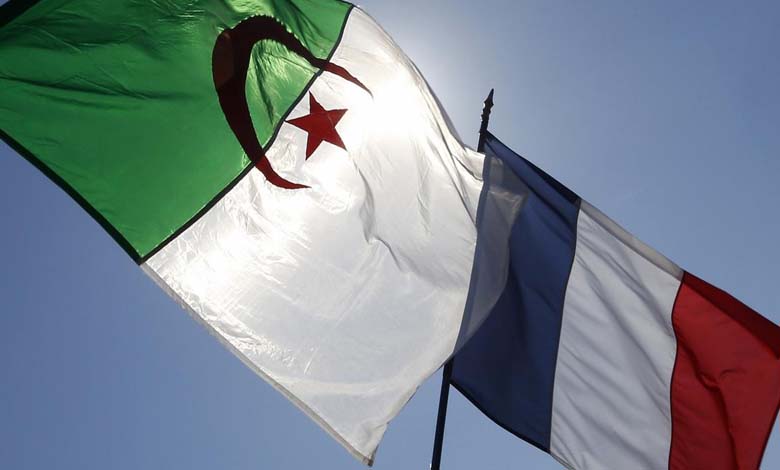French Media Accuse Algeria of Using ‘Hostage Diplomacy’ to Blackmail Paris

The French public is closely following the case of sports journalist Christophe Glaize, amid growing outrage over the sentencing of writer Boualem Sansal.
-
Diplomatic Crisis between France and Algeria: Who Are the 12 Expelled?
-
France and Algeria Closer Than Ever to Diplomatic Break
Glaize, who was arrested in Algeria last year and sentenced last weekend to seven years in prison, has become the center of a heated debate in France. French media accuse Algerian authorities of engaging in “hostage diplomacy” to extract concessions from Paris on several issues, as the sharp diplomatic crisis between the two nations shows no sign of easing.
The case of the football journalist has sparked widespread condemnation. French activists and public figures have called his trial “fabricated” and “politically motivated.” This comes alongside the case of French-Algerian author Boualem Sansal, whose five-year prison sentence was upheld on appeal Tuesday, despite appeals for his release due to age and health concerns.
-
France tightens visa requirements for Tunisian, Moroccan and Algerian citizens
-
Algerian move to disrupt the Morocco-Mauritania rapprochement
The accusations arise amid rising tensions between France and Algeria. Some analysts see Glaize’s case as part of a broader tug-of-war between the two nations. Algerian diplomacy is seen by some as having missed numerous opportunities to repair fractured ties, despite multiple gestures from Paris showing willingness to reconcile.
French MP Naïma Moutchou raised the issue in Parliament, questioning the government on the status of “French hostages” abroad, directly referencing Sansal and Glaize. Foreign Minister Jean-Noël Barrot responded by affirming that the state is working diligently to secure their release.
-
EU Deepens Algeria’s Troubles by Placing It on Blacklist
-
UN and Regional Efforts to Contain Tensions in Tripoli
French media continue to follow the story closely, especially with Glaize’s appeal trial expected soon. This media attention coincides with widespread anger over the confirmation of Sansal’s sentence.
Journalist Ivan Rioufol stated on CNews, “It’s not Boualem Sansal who is being judged in Algeria, but France itself,” claiming that “the Algerian government is waging war against Paris through Sansal.”
-
Commitment to the Atlantic Initiative Sets the Stage for Broader Cooperation between Morocco and Sahel Countries
-
Crisis between Mali and Algeria casts a shadow over regional security
Several human rights and media organizations — including Reporters Without Borders and So Press — condemned Glaize’s sentence as “unjust.” They claim Algeria uses terrorism charges as a pretext to suppress legitimate journalism and criminalize peaceful expression under the guise of national security.
They added that Glaize’s detention and seven-year sentence for “glorifying terrorism” is a direct attack on press freedom.
-
Agreement Between Macron and Tebboune to Resume Dialogue in the First Breakthrough of a Prolonged Crisis
-
Moroccan Diplomatic Expulsion Reveals Algeria’s Discontent with Rabat’s Successes
Glaize had traveled to Algeria to produce a report on JS Kabylie, one of the country’s biggest football clubs, located in Tizi Ouzou. He was arrested on May 28, 2023, placed under judicial supervision for 13 months, and banned from leaving the country. On Sunday, he was sentenced for “glorifying terrorism” and “possessing propaganda materials harmful to national interest.”
Authorities accused him of communicating with a club leader who also heads the Movement for the Self-Determination of Kabylie (classified as a terrorist organization by Algeria in 2021). Supporters of the journalist argue that only one of three interactions occurred after that classification and was part of his reporting.
-
Tebboune Backs Down from Escalation Policy with France
-
Larcher’s Visit to the Moroccan Sahara Reflects France’s Interest in Strengthening Cooperation with Rabat
France–Algeria relations have fluctuated between diplomatic escalations, including Sansal’s arrest, the jailing of an Algerian consular employee in Paris for allegedly abducting a dissident, and the reciprocal expulsion of diplomats.
The Sansal case has intensified the diplomatic rift, especially with the rise of the far-right in France, which has leveraged these issues to pressure Algiers.
-
Legislative Initiative to Eliminate the French Version of the Official Gazette in Algeria
-
Morocco’s Strong Position Pushes Algeria to Avoid Raising the Sahara Issue at the UN Security Council
It is widely believed that Algeria is using the Sansal and Glaize cases to pressure Paris on unresolved disputes — notably colonial memory, immigration, and France’s support for Morocco in the Western Sahara issue.
Algerian authorities continue to reject France’s clear stance on Morocco’s sovereignty over the Sahara, despite French President Emmanuel Macron affirming the decision as final and pledging support for Rabat in international institutions.
The growing France–Morocco strategic partnership worries Algeria, which fears losing economic interests and seeing its influence diminish amid strained relations with several sub-Saharan African countries.












